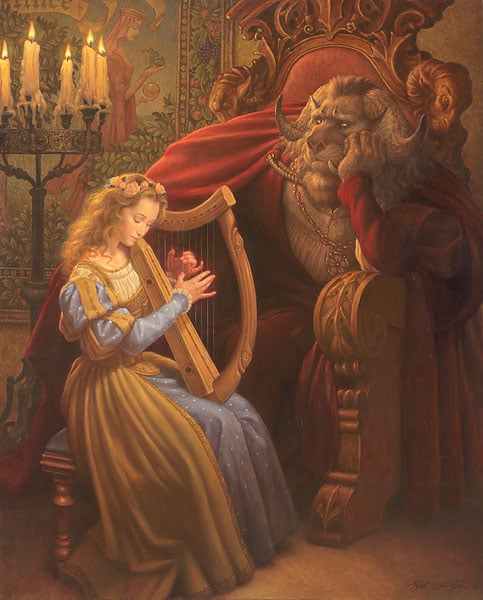Beauty and the Beast
Every evening the Beast comes to visit Beauty in her chamber, to talk with her and be near her. Tonight, as she sweetly plucks the harp strings, her mind wanders home to her father and sisters she misses so terribly. He, on the other hand, can think only of her. Every night before he leaves, this longing for her wells up and consumes him and he is compelled to ask, “Beauty, will you marry me?”
And every night her answer is the same: “Even though I have grown to care for you very much, Beast, I do not love you. I am sorry, but no, I cannot marry you.”
He exhales his grief in a deep sigh that echoes like a moaning wind through the palace corridors. Neither of them is aware at this moment that a bond has grown between them. Nor do they know what miracles the love they share will ultimately reveal.
In folkloric circles, the story of "Beauty and the Beast" belongs to a story motif called a Beast Marriage. This happens to be a very common motif and appears in many tales and ballads throughout the world, one of the most famous variations being Grimm's fairytale, "The Frog Prince."
"Since, from the very beginning I knew there was going to be a tapestry in the background of this piece, the only question was what would be the subject matter," said the artist. "Ultimately, it seemed only fitting that the Beast might have chosen for his wall décor an image depicting characters from a story so similar to his own, and from which he surely would have derived much inspiration."

